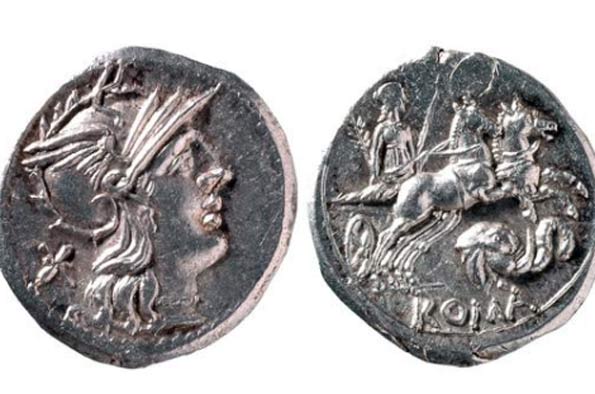
The Roman Cultural Revolution and the Caecilii Metelli
- Rachael Cornwell
- Admission: FREE Online
Add this event to my calendar
Click on "Create a calendar file" and your browser will download a .ics file for this event.
Microsoft Outlook: Download the file, double-click it to open it in Outlook, then click on "Save & Close" to save it to your calendar. If that doesn't work go into Outlook, click on the File tab, then on Open & Export, then Open Calendar. Select your .ics file then click on "Save & Close".
Google Calendar: download the file, then go into your calendar. On the left where it says "Other calendars" click on the arrow icon and then click on Import calendar. Click on Browse and select the .ics file, then click on Import.
Apple Calendar: The file may open automatically with an option to save it to your calendar. If not, download the file, then you can either drag it to Calendar or import the file by going to File >Import > Import and choosing the .ics file.
By 146 BCE Rome was ascendent, Carthage, Macedon and Greece where all under the watchful gaze of the Italian Republic. After this time too there was a shift in the cultural output and interest of Rome spurred on by conquest and control. While the term ‘Revolution’ is perhaps a little strong, it does sum up the impact of the Caecilii Metelli for the middle and late Roman Republic. Looking at the campaigns of Macedonicus and his looting and returning of Greek Art as well as the cultural support of his direct family, looking closely at this family could highlight in more detail how the leading families of Rome impacted cultural and social change. A discussion will be had on the growing wealth and population of the city of Rome and the impact that the ‘Mediterranean Hinterland’ had on the city including the development of public space and Roman art. The focus however will be on the culture that the Metelli; stole, supported and produced, as well as the coins of the younger family members produced in the late 2nd Century BCE.
Please email Rachael Cornwell (R.H.Cornwell@liverpool.ac.uk) or Daniel Lowes (D.G.Lowes@liverpool.ac.uk) for the zoom link.
(Image courtesy of the Money Museum)
